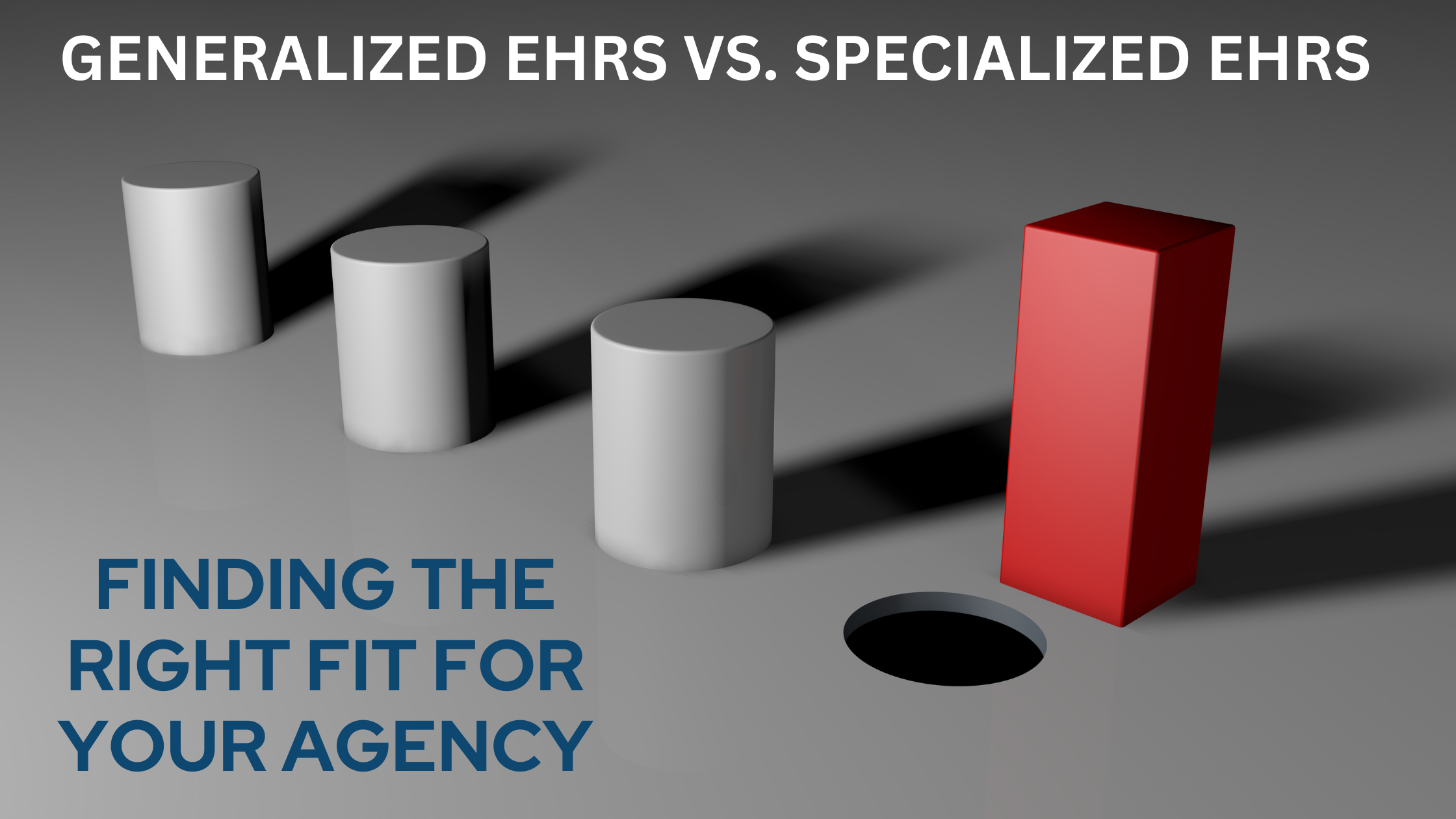Picture this scenario. You work for a correctional facility, and your team is attempting to implement a general, one-size-fits-all EHR system—it seemed like the best option at the time as you considered choosing a specialized EHR vs. a general EHR.
Your findings? The rigid workflows in that system clash with established security protocols at your agency, causing delays in medication administration and hindering timely access to critical patient information. The lack of specialized mental health tools makes it difficult for your staff to track progress and tailor treatment plans, potentially jeopardizing patient outcomes. And the system’s limited integration capabilities create data silos, impeding collaboration between healthcare providers and correctional staff.
This results in compromised patient care, frustrated staff, and increased operational costs.
The Right EHR vs. the Wrong EHR
Make no mistake: when it comes to specialized EHR vs. general EHR software for secure environments like correctional facilities, psychiatric hospitals, and forensic settings, choosing the wrong EHR can have significant, long-term negative effects on your business, productivity, and financial bottom line. While general or generic EHRs might work in standard healthcare settings, they often fall short when dealing with the unique demands of these specialized environments. These settings require specialty-specific EHR solutions that seamlessly integrate with existing workflows, maintain strict security protocols, and cater to the specific needs of complex patient populations.
Where General EHRs Fail
For organizations like state prisons, county sheriff’s offices, and psychiatric/forensic hospitals, some of the out-of-the-box features of general EHRs might not be right for your organization. For example:
- Rigid Workflows: General or generic EHRs are built for standard healthcare workflows. In specialized environments with established processes, forcing these rigid workflows onto staff leads to inefficiencies, frustration, and resistance.
- Inadequate Security: Secure environments need strong data protection. General EHRs might lack the advanced security features to comply with regulations and prevent breaches in these high-stakes settings.
- Limited Customization: Specialized environments often need tailored EHR functions. General or generic EHRs, with limited customization, can’t always adapt to the specific requirements of these settings.
- Integration Challenges: Seamless integration with other applications and systems is critical. General EHRs might lack the flexibility for smooth integration, causing data silos and workflow disruptions.
- Complex Patient Needs: Patients in secure environments often have complex behavioral health needs. General EHRs might not have the tools to manage and support these unique patients effectively.
EHRs: The Cost of Compromise
Trying to force a general EHR into a specialized environment has consequences:
- Workflow Disruptions: Inefficient workflows lead to decreased productivity, delays in care, and increased administrative burdens.
- Security Risks: Inadequate security leads to data breaches, non-compliance, and financial penalties.
- Compromised Patient Care: Limited functionality and customization hinder specialized care for complex patient needs.
- Frustration and Resistance: Staff resist using an ill-suited EHR, leading to low morale, decreased productivity, and implementation failures.
EHRs: The Solution: Specialized EHRs
Specialty-specific EHRs, designed for secure and specialized environments, are the answer. They address the unique challenges of these settings by providing:
- Flexible Workflows: Adaptable workflows that match existing processes.
- Robust Security: Advanced security to protect patient data and ensure compliance.
- Customization Options: Tailored functions to support unique needs.
- Seamless Integration: Interoperability with other applications for data sharing and workflow efficiency.
- Specialized Tools: Features designed to support complex patient needs in secure environments.
Investing in the Right EHR Solution
Choosing the right EHR is critical, especially in specialized settings. Investing in a specialized EHR allows these organizations to:
- Optimize Workflows: Improve productivity, streamline processes, and reduce administrative burdens.
- Enhance Security: Protect patient data and ensure compliance.
- Improve Patient Care: Provide specialized care for complex needs.
- Increase Staff Satisfaction: Foster adoption and improve morale with a system that fits their needs.
The limitations of general EHRs in these environments are clear, potentially leading to workflow disruptions, security risks, compromised patient care, and staff dissatisfaction. Embracing a specialized EHR, tailored to the unique demands of your organization, is not merely a choice but a strategic imperative.
In specialized healthcare, one size doesn’t fit all. Specialized EHRs are key to success in secure environments.
Other EHR Articles You Might Like
Discover the Fusion Difference
Ready to experience the difference a specialized EHR can make? Explore FusionEHR today and discover how our platform empowers you to deliver exceptional care while maintaining the highest standards of security and efficiency. Contact a sales associate today to schedule a demo or learn more.

